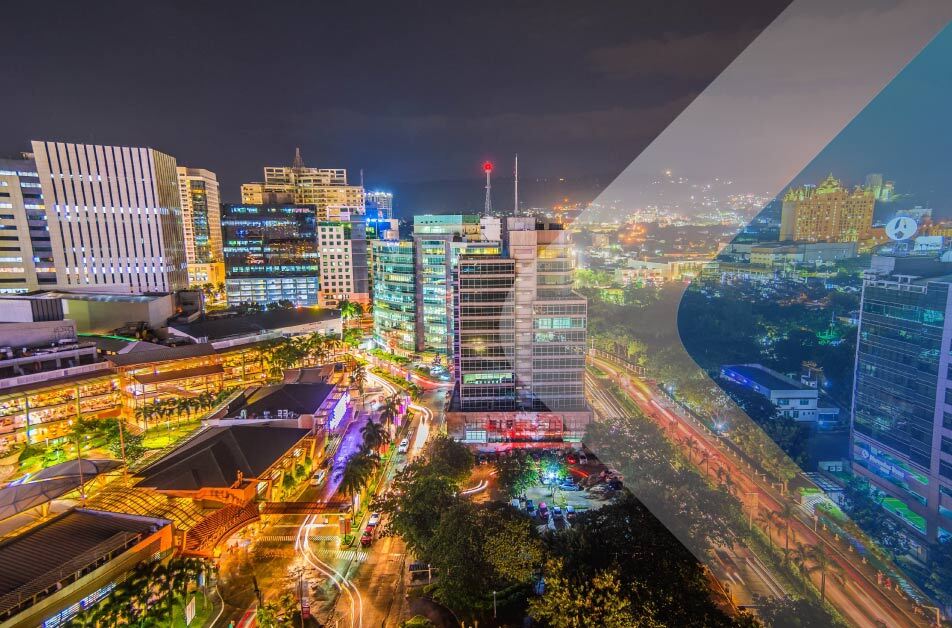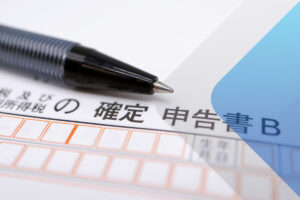Employer Of Record in Japan
We make it easy and painless to expand your business into Japan. Forget about dealing with local regulations, confusing tax laws and international payroll management. We take care of all that so you don't have to.
Accelerate your growth into Japan Compliantly and hassle-free
How we can help you expand in Japan
As your EOR in Japan we’d help you expand by hiring employees and running their payroll without establishing a local branch office or subsidiary.
Your candidate is hired by a PEO in Japan provider in accordance with local labor laws and can be onboarded in days instead of the months it typically takes. Shortly after, your new employee will be working for you, just like any other member of your team.
Expand to Japan with Serviap Global
Through our PEO and EOR services, you can hire qualified talent in your industry without the trouble of opening your own legal entity.
In just a few days, you can easily and safely build a presence in Japan being sure that your staff will be hired in compliance with labor and tax regulations
Quick Facts
Currency:
Yen (JPY)
Capital:
Tokyo
Payroll Cycle:
Monthly
Language:
Japanese
Japan Country Facts
Japan has a long history of trade with China and Korea. It has also been ruled by imperial dynasties for more than a thousand years with the major cultural players the nobles and military governors.This system gave place to a more western way of doing business and experienced an amazing economic growth.
Japan is prone to tsunamis and earthquakes and has adapted to those threats by developing pioneering engineering structures. Japan has also impacted world markets with its automotive technologies, video games, and anime creations. This country is also known for its vending machines which sell everything from technology products to soups. It is one of the world’s largest economies but imports most of its raw materials. The major cities are Tokyo, Yokohama, Osaka, Nagoya, and Sapporo.
The Economy
Japan enjoys a free-market economy and it is the third largest by GDP, its currency is the yen. It is highly industrialized and exports many products such as medical equipment, vehicles, and electronics. It has well- developed services like banking, real estate, and insurance. Japan is also a top tourist destination and is a premier exporter of fish. Japan’s strongest trading partner is the United States and it is the fourth-largest consumer market in the world, behind China, the European Union, and the United States.
Small and Medium Enterprises
Small and Medium Businesses (SMEs) account for 99.7% of all companies in Japan. They provide a key strategic role by adapting rapidly to market changes. SMEs in manufacturing account for 21.5% of employment, in wholesale and retail for 34%, in services for 19%, in construction for 12.4%, in transportation for 6% and in real estate for 2%.
Starting a Business
The “Start-Up” visa is the simplest way to start a business in Japan and it is valid for 6 months. You will need to have a Japanese office address which cannot be a place of residence and you will need to bring an investment capital of 5 million yen or have at least two full time employees or have 2.5 million yen and 1 employee.
You can use a 4-month business manager visa to first set up your bank account, hire personnel, provide a business plan, and register the business. The business will either be a corporation or a Limited Liability Company. To get help with the process, contact the Tokyo One-Stop Business Center Establishment.
Payroll
The employee Social Security tax is 17.8%, but half of the payment is made by the employee. Worker’s compensation insurance costs between 0.3% and 10.3% depending on the industry.
| Minimum Wage | €1,280.7 per month |
| Wages | 307.7 thousand Japanese yen |
| Payment Cycle | Payment typically occurs on the 25th |
| 13th and 14th month bonus | Bonuses for employees in Japan happen twice a year. |
| Overtime | Overtime cannot exceed 45 hours a month. |
Vacation Time | Years Annual Leave .5 10 days 1.5 11 days 2.5 12 days 3.5 14 days 4.5 16 days 5.5 18 days 6.5 or more 20 days |
Leaves of Absence Employees have the right to paid absences for the following things: | • Sick Leave: There are no sick leave rights in Japan. • Maternity Leave: Women receive 6 weeks before birth and 8 weeks after. They must receive approval from a Dr before returning to work if they want to return to work sooner. Childcare leave is something different and begins after this time and lasts up until the child is 12 months old. • Paternity Leave: Paternity leave for fathers is immediately childcare leave as men- tioned above. This lasts up to 12 months as stated. • Family Emergency: 5 days of unpaid leave to care for a family member requiring con- stant care for two weeks or more. • Bereavement Leave: If a family member passes you are allowed up to 2 consecutive days. |
Renewable Energy
Japan creates 10% of its energy from renewable technology. The country wants to increase its renewable energy technology to be less dependent on nuclear technology and energy imports. There is a good opportunity for growth using solar, wind, geothermal and biomass. To show its commitment to clean energy, Japan used 100% renewable energy to power the Tokyo Olympics hydrogen technology; they also used biomass and solar.
Business Culture
Japan has an ancient ritualistic tradition of honor and efficiency.
- Ancient Modern Tradition
This tradition is merged with modern technologies, making business dealings very formal and professional. There is a formal introduction protocol which will connect you with the internal decision- making process. This process can be slow. - Trustworthy People
Japanese people value trust and sincerity. As a person, it will be important to show that your main interest is not solely profit, but also the well-being of the employees and the company. - The Bow
When first meeting a Japanese decision maker, it is typical for you to shake hands and slightly bow. It is also important to have direct eye contact and a good body posture when discussing business.
Food Culture
Japanese cuisine is based on long traditions and favors rice and noodle soups made from meat, vegetables and fish. Japanese people also like to eat raw fish, or sushi.
Many Japanese Buddhists are vegetarian. The most popular vegetables are lotus roots, yams, mushrooms, and bean sprouts.
The traditional beverages are teas and sake (this is a wine made with rice). The cuisine is well liked by foreigners and the presentation is usually stunning.
Population
The population of Japan is 125.8 million but it is slowly decreasing and has the highest proportion of elderly citizens in the world. About 38% of the Japanese population is above 60 years old. This trend is mostly due to a baby boom in the late 1940s and a subsequent low fertility rate.
Japan is one of the most populous countries in the world–it ranks 11th–it also enjoys one of the highest life expectancies. The main language is Japanese. The population is used to making long commutes to large cities for work, in fact the transportation system is outstanding. About 90.7% of Japanese people live in cities, the Tokyo-Yokohama regions have a population of 35 million residents. This makes the Tokyo area the most highly populated city in the world.
Geography
Japan is situated close to Russia, Korea, and China. It is the 4th largest island country in the world. Composed of a string of islands on the eastern edge of Asia, this country has more than 6000 small islands in the area and most people live on 5 main islands.
It is mainly made up of mountain ranges, plateaus, and 66% of it is forests. The entire Japanese archipelago is about 1,900 miles long. The climate is humid continental to the north and humid subtropical in the south.
- Tokio
As this is one of the most populous cities in the entire world it is a massive economic center and a hub for technology and innovation. There are a lot of diverse sectors represented including software, robotics, advanced manufacturing, fintech and consumer services. The best part about this city is that the government and corporations are aiming to expand Tokyo’s innovative mindset to be more inclusive with cross-country and cross-cultural collaboration. - Osaka
This has long been an economic hub with 180,000 businesses. This attracts a lot of tourists and commuters, in fact there are up to 3.5 million people here during the day. Partnerships have also been leveraged between public and private sectors to fuel innovation in Japan and worldwide. - Fukuoka
This is the startup hub of Japan. It has the highest population growth rate of any city. The city has significantly lowered corporate tax rates for startups and eased visa requirements to make businesses easier to establish and grow, this is because the mayor is hoping this becomes a hub of technology and services. In 2014 the city was designated to be the national strategic special zone to test how to grow an innovative ecosystem, so that they could spread this across the country.
General Highlights
| Year | 2022 |
| Country | Japan |
| Capital | Tokyo |
Num. States / Province | There are 47 Prefectures in Japan: Aichi, Akita, Aomori, Chiba, Ehime, Fukui, Fukuoka, Fukushima, Gifu, Gunma, Hiroshima, Hokkai- do, Hyōgo, Ibaraki, Ishikawa, Iwate, Kagawa, Kagoshima, Kanagawa, Kōchi, Kumamoto, Kyoto, Mie, Miyagi, Miyazaki, Nagano, Na- gasaki, Nara, Niigata, Ōita, Okayama, Okina- wa, Osaka, Saga, Saitama, Shiga, Shimane, Shizuoka, Tochigi, Tokushima, Tokyo, Tottori, Toyama, Wakayama, Yamagata, Yamaguchi, Yamanashi |
| Language | Japanese |
| Local Currency | Yen |
| Major Religion | Shinto and Buddhism |
| Date Format | yyyy/mm/dd |
| Thousands Separator Format | 999.999.999.99 |
| Country Dial Code | +81 |
| Time Zone | GMT+9 |
| Population | 125.8m |
| Border Countries | China, North Korea, South Korea, Russia, Taiwan. |
| Continental surface | 145,937.06 mi² |
| Fiscal Year | April 1 to March 31 |
| VAT % | 10% |
| Minimum Wage | €1,280.7 per month |
| Taxpayer Identification Number Name in the country | 個人番号, kojin bangō |
| Current President | Fumio Kishida |
What you need to know about employing personal in Japan:
Laws and Agencies that regulate labor relationships
| Laws | Brief Description |
Constitution of Japan 1946 | Most of the fundamental labor standards in Japan are laid out in their constitution. This law states the right and obligation to work, a ban on child labor and the freedom of a workers association. |
| Labor Standards Law (LSL) | This regulates working condition and safety/hygiene in the workplace |
| Trade Union Law (TUL) | This gives the worker the right to bargain collectively and organize. |
| Labor Relations Adjustment Law (LRAL) | Labor management adjustments and means of dispute settlement are laid out in this law. |
Organization membership | ADB, AfDB (nonregional member), APEC, Arctic Council (observer), ARF, ASEAN (dialogue partner), Australia Group, BIS, CD, CE (observer), CERN (observer), CICA (observer), CP, CPLP (associate), EAS, EBRD, EITI (implementing country), FAO, FATF, G-5, G-7, G-8, G-10, G-20, IADB, IAEA, IBRD, ICAO, ICC (national committees), ICCt, ICRM, IDA, IEA, IFAD, IFC, IFRCS, IGAD (partners), IHO, ILO, IMF, IMO, IMSO, Interpol, IOC, IOM, IPU, ISO, ITSO, ITU, ITUC (NGOs), LAIA (observer), MIGA, NEA, NSG, OAS (observer), OECD, OPCW, OSCE (partner), Pacific Alliance (observer), Paris Club, PCA, PIF (partner), SAARC (observer), SELEC (observer), SICA (observer), UN, UNCTAD, UNESCO, UNHCR, UNIDO, UNMISS, UNRWA, UNWTO, UPU, WCO, WFTU (NGOs), WHO, WIPO, WMO, WTO, ZC |
| Labor Code | No one labor code |
Social Security | Japan has a comprehensive social security that covers pension, health, family, the disabled and elderly, and employment of senior workers is also encouraged within this. |
Key Tax and Labor Authorities
| National Tax Agency | The national tax agency in Japan handles tax within the country. |
| Ministry of Health, Labor and Welfare | Kōrō-shō in Japan is the cabinet-level ministry in the government that provides services for health, labor and welfare. |
Labor Contracts
Employment is founded on lifetime employment | Typically employees remain with a company for their working life and the post is assured until retirement between 55-60. Most first time employees don’t have special skills but are trained in different positions throughout their lifetime. 74% of companies do not follow this policy due to a changing climate in the workplace. |
Fixed-term Contracts | Due to the change in climate, fixed-term contracts are being implemented more often than they were. These must not be longer than one year, unless for exceptional circumstances such as a special position or someone over the age of 60. |
Temporary Work Contracts | This is governed by the Worker Dispatching Law, and the worker has an employment contract with a worker dispatching agency who works under a client company. The worker is dispatched for up to a year to a client company. If the company needs the employee for longer they will be encouraged to take on the worker as their own employee. There are however special circumstances where a dispatch worker will work for a company for longer than a year such as replacing a female employee on maternity leave. This type of work is prohibited in the port transport, construction and guard service sectors. |
Part Time Work | This type of work is governed by the Part Time World Law, and an employee qualifies as part time if their work hours are less than other employees in the workplace. Regular pay hikes, bonuses and retirement allowances do not apply to these kinds of workers. |
Probation | Contracts may lay out a probation period which is not legally limited. It’s renewal is also not prohibited. However, a protection against dismissal is assured to the worker after the first 14 days. After which the employer must give the employee 30 days notice. |
Trade Unions | The freedom of workers’ associations is granted in Art. 28 of the Constitution. Trade Unions are ruled by the TUL. These unions are involved in issues related to their members within a company or enterprise. |
Employers Associations | Employers are also governed by a type of union, such as the Japanese Federation of Employers’ Associations (Nikkeiren) ub industrial relations. These are the official voice of employers in the ILO but has no direct part in collective bargaining. |
Work Hours | Average work in Japan is 40 hours a week and 8 hours a day. All employees must have one rest day a week, and at least 45 minutes after working 6 hours straight. And one hour after working 8 hours straight. There is no limit to overtime, unless the employee is a protected worker such as caregivers and mothers of young children. |
| Taxable Income in Yen | Tax Rate % |
| 0-1,950,000 | 5 |
| 1,950,000-3,300,000 | 10 |
| 3,3000,000-6,950,000 | 20 |
| 6,950,000-9,000,000 | 23 |
| 9,000,000-18,000,000 | 33 |
| 18,000,000-40,000,000 | 40 |
| 40,000,000 and above | 45 |
However deductions also apply:
| Employment Income in Yen | Employment Deductions in Yen |
| 0-1,625,000 | 550,000 |
| 1,625,000-1,800,000 | (income) X 40% – 100,000 |
| 1,800,000-3,600,000 | (income) X 30% – 80,000 |
| 3,600,000-6,600,000 | (income) X 20% – 440,000 |
| 6,600,000-8,500,000 | (income) X 10% – 1,100,000 |
| Over 8,500,000 | 1,950,000 |
Corporate Tax Rates
A domestic corporation in Japan is taxed by its worldwide income, the tax is rather complicated with several different taxes and stipulations applied. 95% of dividends received by a company from a foreign country (in which it has held at least 25% of the outstanding shares for a continuous period of six plus months) can be excluded from the company’s taxable income.
Beginning from 2019 companies are also expected to pay a local tax of 10.3%.
Public Holidays
Date 2022 | Holiday Name |
1 Jan | Japanese New Year |
10 Jan | Coming of Age Day |
11 Feb | National Foundation Day |
23 Feb | The Emperor’s Birthday |
21 March | Vernal Equinox Day |
29 Apr | Shōwa Day |
29 Apr – 5 May | Golden Week |
3 May | Constitution Memorial Day |
4 May | Greenery Day |
5 May | Children’s Day |
18 July | Marine Day |
11 Aug | Mountain Day |
19 Sep | Respect for the Aged Day |
23 Sep | Autumnal Equinox Day |
10 Oct | Sports Day |
3 Nov | Culture Day |
23 Nov | Labor Thanksgiving Day |
Termination
Type of Termination | Brief Description |
Justified Dismissal | Notice must be given of a 30 day period. If the employer wishes to reduce the amount of days they can pay the average wage for each day by which the period is shortened. It is recommended but not required to do this in writing. An employer does not need to give notice if a natural disaster or equivalent has made continued work impossible. Or the dismissal is due to the worker. There must also be reasonable cause otherwise it is null and void. |
Protected Workers | Certain workers cannot be let go and also certain reasons are not a justified dismissal. • Reasons based on marriage • Pregnant women or those requesting child care leave • Discrimination • Absent workers due to illness and 30 days thereafter • During maternity leave and 30 days thereafter |
You might be interested in reading...
Your one-stop global hiring solution. Secure, reliable, compliant

Premium Support
No matter how big or small, we are ready to answer all your questions- anytime, anywhere.

Regional expertise
Our team of in-country experts help you navigate new markets and cultural nuances

Top-tier Benefits Packages
Great talent deserves great benefits. We offer a competitive range of benefits so that you only attract top-tier talent worldwide.

You remain 0% liable
Shift the worry from your shoulders to ours! We stay on top of regulations so you’re always 100% complaint with local laws







